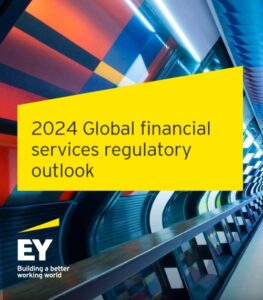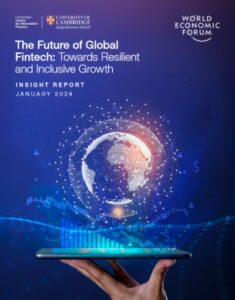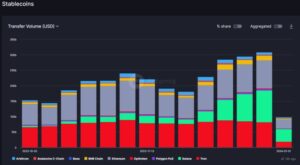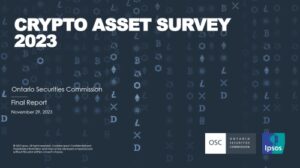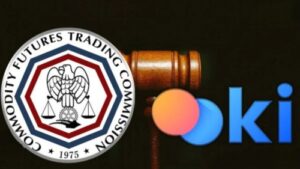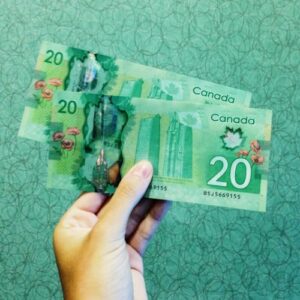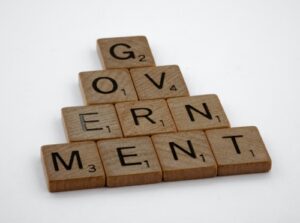Protecting Financial Privacy in the Digital Age: Crafting a Stronger Framework
Cato Institute | Nicholas Anthony | May 2, 2023

Image: Pixabay/Geralt
- Financial privacy in the United States has been deteriorating over the past 50 years, with the third-party doctrine and Bank Secrecy Act weakening Fourth Amendment protections.
- The Right to Financial Privacy Act, enacted in 1978, provides some protections but is undermined by numerous exceptions. A revised legal and regulatory framework must protect against warrantless searches and seizures.
- Congress should amend the Right to Financial Privacy Act to remove exceptions, requiring government agencies to obtain warrants or subpoenas and notify Americans when accessing their financial information. This is necessary to restore financial privacy, particularly in the digital age.
-
See: Financial Privacy: SEC Launches Enormous Database Compiling All Stock Trades
- Several key recommendations to establish a stronger framework for financial privacy in the United States.
- These include removing exceptions to the protections of the Right to Financial Privacy Act, eliminating 26 U.S.C. Section 6050I, strengthening the formal written requests provisions of the Act;
- Repealing the Bank Secrecy Act or at least its customer reporting requirements; R
- equiring inflation adjustments to reporting thresholds;
- Publicly reporting the effectiveness of suspicious activity and currency transaction reports; and
- Enacting protections for two-party transactions, such as peer-to-peer exchanges and self-hosted wallets, to prevent further encroachment of financial surveillance on Americans' privacy.
- Holding cryptocurrency in a “self‐hosted” wallet is merely the digital equivalent of holding physical cash in a traditional wallet. It gives the owner complete control over what’s held inside it and, to the extent that they want to do so, the ability to maintain their privacy. Congress should not let financial surveillance further encroach on Americans’ privacy by being expanded to cover self‐hosted wallets and peer‐to‐peer exchanges.
See: Office of the Privacy Commissioner Announces Digital ID Ecosystem Resolution to Ensure Transparency and Privacy
- It is time to reconsider the third‐party doctrine, the reasonable expectation of privacy, and financial privacy. “Having technology” in the 1970s meant having a television and an electric typewriter. Less than 20 percent of families had a credit card issued by a bank. Today, Americans use credit or debit cards for nearly all purchases, acquire loans directly on their phones, and leave a digital trail nearly everywhere they go. So, while such financial records may have offered only limited insights into one’s life in the 1970s, these financial records now offer a full, detailed representation of one’s life.
Continue to the full article --> here
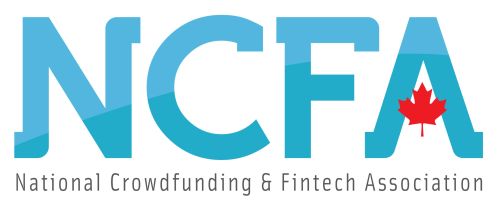 The National Crowdfunding & Fintech Association (NCFA Canada) is a financial innovation ecosystem that provides education, market intelligence, industry stewardship, networking and funding opportunities and services to thousands of community members and works closely with industry, government, partners and affiliates to create a vibrant and innovative fintech and funding industry in Canada. Decentralized and distributed, NCFA is engaged with global stakeholders and helps incubate projects and investment in fintech, alternative finance, crowdfunding, peer-to-peer finance, payments, digital assets and tokens, blockchain, cryptocurrency, regtech, and insurtech sectors. Join Canada's Fintech & Funding Community today FREE! Or become a contributing member and get perks. For more information, please visit: www.ncfacanada.org
The National Crowdfunding & Fintech Association (NCFA Canada) is a financial innovation ecosystem that provides education, market intelligence, industry stewardship, networking and funding opportunities and services to thousands of community members and works closely with industry, government, partners and affiliates to create a vibrant and innovative fintech and funding industry in Canada. Decentralized and distributed, NCFA is engaged with global stakeholders and helps incubate projects and investment in fintech, alternative finance, crowdfunding, peer-to-peer finance, payments, digital assets and tokens, blockchain, cryptocurrency, regtech, and insurtech sectors. Join Canada's Fintech & Funding Community today FREE! Or become a contributing member and get perks. For more information, please visit: www.ncfacanada.org
Related Posts
- SEO Powered Content & PR Distribution. Get Amplified Today.
- PlatoAiStream. Web3 Data Intelligence. Knowledge Amplified. Access Here.
- Minting the Future w Adryenn Ashley. Access Here.
- Buy and Sell Shares in PRE-IPO Companies with PREIPO®. Access Here.
- Source: https://ncfacanada.org/protecting-financial-privacy-in-the-digital-age-crafting-a-stronger-framework/
- :has
- :is
- :not
- 20
- 2018
- 26
- 50
- 8
- a
- ability
- accessing
- acquire
- Act
- activity
- adjustments
- affiliates
- against
- age
- agencies
- All
- alternative
- alternative finance
- Americans
- an
- and
- Announces
- Anthony
- article
- AS
- Assets
- At
- Bank
- bank secrecy act
- become
- been
- being
- blockchain
- but
- by
- cache
- Canada
- card
- Cards
- Cash
- Category
- closely
- commissioner
- community
- complete
- control
- cover
- create
- credit
- credit card
- Crowdfunding
- cryptocurrency
- Currency
- customer
- Database
- Debit
- Debit Cards
- decentralized
- detailed
- digital
- digital age
- Digital Assets
- Digital ID
- directly
- distributed
- do
- ecosystem
- Education
- effectiveness
- Electric
- eliminating
- engaged
- enormous
- ensure
- entry
- Equivalent
- Ether (ETH)
- Exchanges
- expanded
- expectation
- families
- finance
- financial
- financial information
- financial innovation
- financial privacy
- fintech
- For
- formal
- Fourth
- Framework
- from
- full
- funding
- funding opportunities
- further
- get
- gives
- Global
- Go
- Government
- had
- Have
- having
- Held
- helps
- holding
- http
- HTTPS
- ID
- Identity
- in
- include
- industry
- inflation
- information
- Innovation
- innovative
- insights
- Insurtech
- Intelligence
- into
- investment
- Issued
- issues
- IT
- ITS
- Jan
- jpg
- launches
- least
- Leave
- Legal
- less
- Life
- Limited
- Loans
- maintain
- Market
- max-width
- May..
- member
- Members
- merely
- more
- must
- nearly
- necessary
- networking
- now
- numerous
- obtain
- of
- offer
- offered
- Office
- on
- only
- opportunities
- or
- over
- owner
- particularly
- partners
- past
- payments
- peer to peer
- percent
- perks
- phones
- physical
- plato
- Plato Data Intelligence
- PlatoData
- please
- prevent
- privacy
- projects
- protect
- protecting
- provides
- purchases
- reasonable
- reconsider
- records
- Regtech
- Regulation
- regulatory
- remove
- removing
- Reporting
- Reports
- representation
- requests
- Requirements
- Resolution
- restore
- s
- SEC
- Section
- Sectors
- Services
- should
- So
- some
- stakeholders
- States
- Stewardship
- stock
- strengthening
- stronger
- such
- surveillance
- suspicious
- TAG
- television
- than
- that
- The
- their
- These
- they
- third-party
- this
- thousands
- time
- Title
- to
- today
- Tokens
- trades
- traditional
- transaction
- Transactions
- Transparency
- United
- United States
- use
- vibrant
- Visit
- Wallet
- Wallets
- want
- Warrants
- when
- while
- with
- works
- written
- zephyrnet


